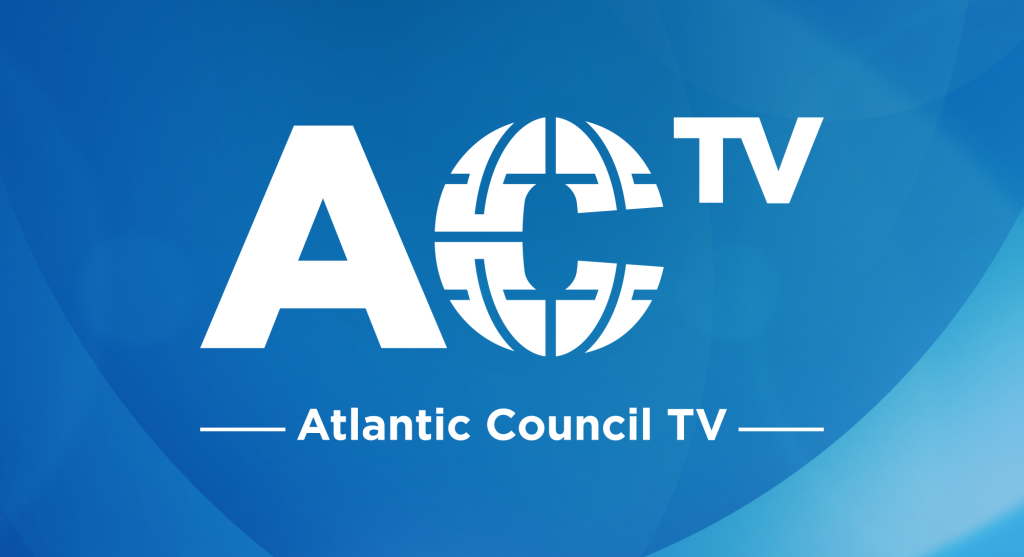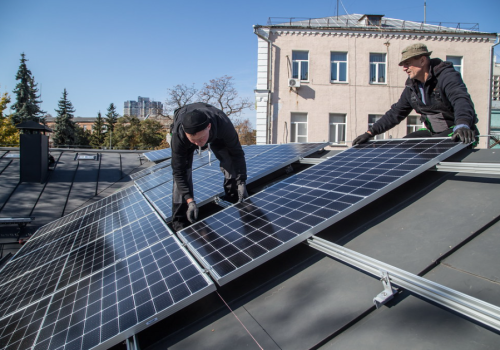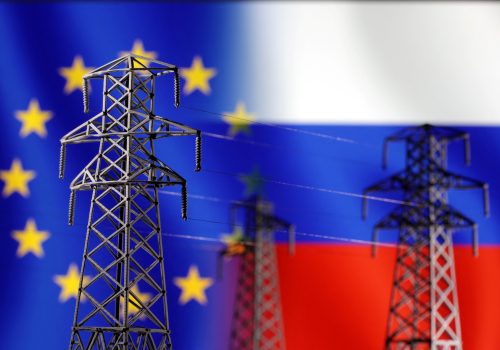As Western countries attempt to reduce Russia’s ability to use oil and natural gas as a tool of its foreign policy, nuclear fuel remains a source of Russian influence across the globe. Rosatom’s supply of nuclear fuel powers nuclear reactors in fifteen countries, and Russia is also an active participant in the construction of new nuclear power plants, often offering agreements for several decades of supply and thereby cementing the relationship and ensuring Moscow’s ability to use nuclear fuel as a bargaining chip long into the future.
Continued dependence on nuclear fuel produced by the Russian state-owned nuclear energy conglomerate Rosatom remains a key tool in the Kremlin’s global strategy to deepen global energy dependence on Russia. As a result, some officials in both Kyiv and Washington have advocated for the sanctioning of Rosatom as a part of the international response to Russia’s full-scale invasion of Ukraine.
Today, Russia remains the world’s leading producer of enriched uranium. Despite the political pressure to reduce dependence on Russian nuclear fuel, Rosatom still supplied approximately 24 percent of the enriched uranium purchased by US nuclear reactors in 2022. At the Group of Seven meeting in Sapporo, Japan in April 2023, five countries, including the United States, pledged to create shared supply chains of nuclear fuel that would “isolate Russia.” However, experts say it will take almost half a decade before US domestic production of enriched uranium will be able to ramp up production to meet domestic demand, and the US is unlikely to threaten Russia’s share of the global nuclear fuel market any time soon.
Why have Ukraine’s Western allies not yet fully sanctioned Rosatom? Would sanctions on Rosatom be effective at curbing Russia’s global influence? How can the United States reduce its dependence on Russian nuclear fuel?
The Atlantic Council’s Eurasia Center and the Atlantic Council’s Nuclear Energy Policy Initiative gather a panel of experts to address these questions and more.
Keynote remarks
H.E. German Galushchenko
Minister of Energy of Ukraine
Speakers
Debra Cagan
Senior Advisor, Eurasia Center
Atlantic Council
John Kotek
Senior Vice President of Policy Development and Public Affairs
Nuclear Energy Institute
Sean Oehlbert
Vice President, Corporate Business Strategy
Centrus Energy Corporation
Olena Pavlenko
President
DiXi Group
Moderator
Jennifer Gordon
Director, Nuclear Energy Policy Initiative
Atlantic Council
This event will not feature an in-person audience. You will be able to join via desktop or mobile app, through your web browser, or by phone. To join the question and answer period, you must join by app or web.
Register above for details on joining the virtual audience.
Stay connected
Follow us on social media
and support our work
Related content

The Eurasia Center’s mission is to promote policies that strengthen stability, democratic values, and prosperity in Eurasia, from Eastern Europe in the West to the Caucasus, Russia, and Central Asia in the East.

The Global Energy Center develops and promotes pragmatic and nonpartisan policy solutions designed to advance global energy security, enhance economic opportunity, and accelerate pathways to net-zero emissions.
Atlantic Council TV

Watch this event and more content on ACTV
Follow the conversations shaping our world. Available on all major platforms.


